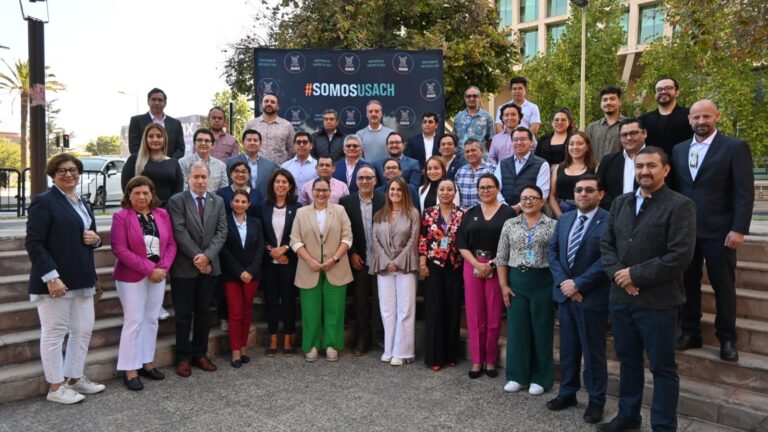For a week, 27 delegates from 20 Higher Education Institutions in the country toured spaces of innovation and education.

The CEDIA Community of Rectors program carried out the third immersion in the Chilean Education and Innovation Ecosystem. On this occasion, 27 delegates from 20 Higher Education Institutions in the country participated.
For a week, academic authorities learned about Chile's ecosystem, which has witnessed notable transformations in the last 15 years, thanks to a series of initiatives and public policies. These measures have strengthened research, development and the connection between science and industry, giving rise to the emergence of companies based on science and technology.
The participants visited the University of Chile, a prominent public institution in the country with 20 centers of research excellence. They focused on the Faculty of Physical and Mathematical Sciences, where they learned about the work of several centers, including the Center for Biotechnology and Bioengineering – CEBIB. This interdisciplinary center investigates key topics in biotechnology and bioengineering, with relevant applications in industry. Likewise, they explored the Center for Mathematical Modeling -CMM, leading mathematical research and applications at the national level.
In addition, Open Beauchef, the Innovation and Entrepreneurship Center of the Faculty of Physical and Mathematical Sciences of the University of Chile, directed by Alejandro Pantoja, was visited. This center seeks to promote innovation and entrepreneurship in the community, facilitating the transfer of scientific and technological knowledge to society.
The delegation also visited the Center for Astrophysics and Related Technologies –CATA. This center is dedicated to cutting-edge research in astronomy and related technologies, being the largest scientific effort led by astronomers in Chile. CATA has a multidisciplinary team committed to scientific excellence.
In addition, the academic authorities participated in the Science and Technology Seminar: Building Bridges between Chile and Ecuador , a space to facilitate interaction between the delegation and the actors of the science, innovation and entrepreneurship ecosystem in Chile. Exemplary actions to implement in Ecuador were highlighted, with emphasis on government programs and agencies dedicated to science and technology.
The seminar featured the participation of various Chilean institutions, such as the Production Promotion Corporation and the National Research and Development Agency, as well as the presentation of the APTA Hub and the Innovation Forum. Programs and initiatives to promote research, technological development and innovation based on science and technology were discussed.
The immersion ended with a meeting between the highest authorities of the universities of Ecuador and Chile to plan future actions that promote the innovation ecosystem in both countries, and with visits to emblematic institutions in Valparaíso, reinforcing the regional commitment to science, technology and entrepreneurship.

